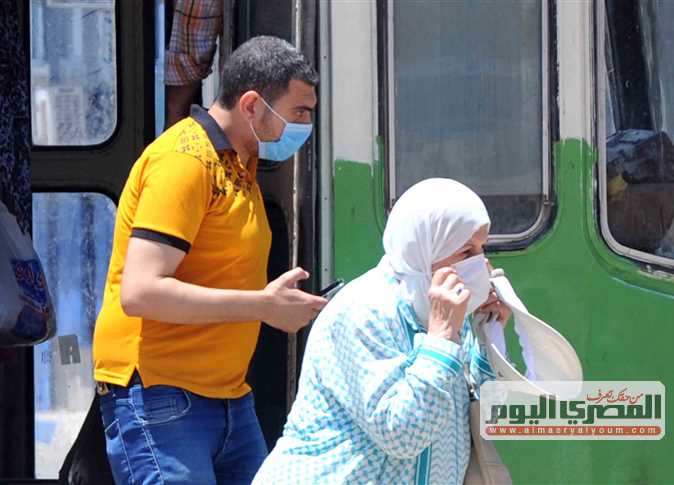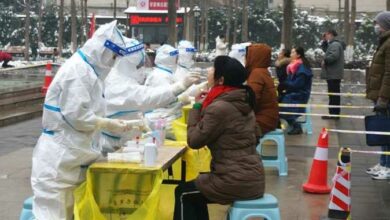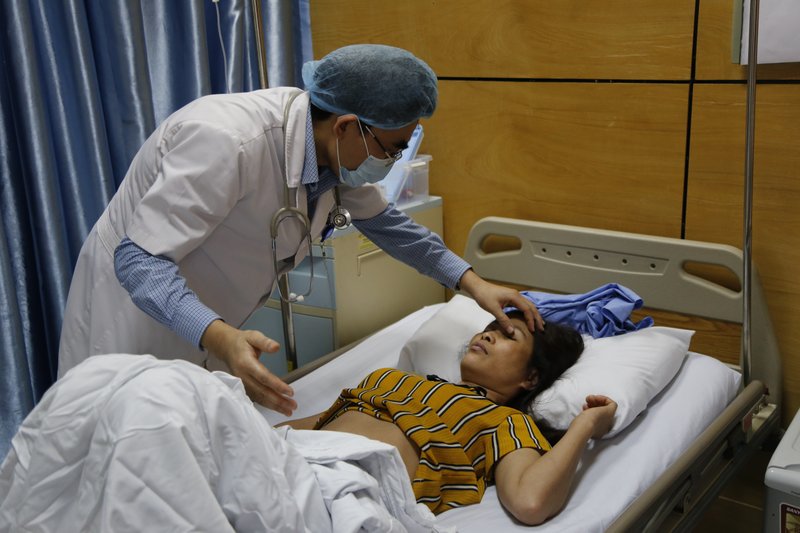
The World Health Organization (WHO) has recently been walking back statements it made on how to deal with the coronavirus pandemic that has been wreaking havoc in the world since December of last year.
COVID-19 has killed at least 407,914 people around the world as of Tuesday evening, according to statistics produced by AFP. The virus has infected more than 7,169,550 people in 196 countries and territories since the outbreak began.
The World Health Organization has retreated from its position on three basic issues regarding the coronavirus.
First: Is a face mask useful in preventing the virus?
At the onset of outbreak, the WHO announced on its official website that there was no evidence to support or deny the usefulness for healthy individuals of wearing medical or other face masks.
However, the organization is studying the rapidly developing scientific knowledge on face masks and is constantly updating its guidance in this regard.
Earlier this week, the WHO retreated from its earlier statement and issued a recommendation to governments to ask people to wear cloth face masks in public spaces in order to help limit the spread of coronavirus.
The new directives, supported by the results of studies conducted in recent weeks, emphasize that face masks are only one of a group of tools that reduce the risk of the virus spread.
“Masks alone will not protect you from COVID-19. We advise governments to encourage people to wear masks, and we specifically mean cloth masks, that is, non-medical masks,” Tedros Adhanom Ghebreyesus, the organization’s director-general, told reporters.
Second: What about asymptomatic transmission?
As the virus began to spread, the WHO said on its official website that “COVID-19 infection is mainly caused by respiratory droplets secreted by a person who coughs or has other symptoms such as fever or fatigue, but many people with COVID-19 infection show only very mild symptoms.”
This is especially true in the early stages of the disease, and the virus can be caught from someone who has a mild cough and does not feel ill. Some reports indicate that the virus can be transmitted even by people who show no symptoms.
The extent of this type of infection transmission is not yet known, however, and the WHO continues to evaluate ongoing research and will publish any updated results.
Two days ago, the organization revised its position again, stating that coronavirus transmission from people who carry the virus without symptoms is “very rare,” a statement that contradicts the its previous statements.
At a press conference in Geneva Director of the Emerging and Zoonotic Diseases Unit of the WHO Maria Van Kerkhove said that, “It passes from an individual through infectious droplets. If we actually followed all of the symptomatic cases, isolated those cases, followed the contacts and quarantined those cases, we would drastically reduce — I would love to be able to give a proportion of how much transmission we would actually stop — but it would be a drastic reduction in transmission,” she said.
“When we actually go back and we say how many of them were truly asymptomatic, we find out that many have really mild disease,” Van Kerkhove said.
“They’re not quote-unquote Covid symptoms, meaning they may not have developed fever yet, they may not have had a significant cough, or they may not have shortness of breath — but some may have mild disease,” she said. “Having said that, we do know that there can be people who are truly asymptomatic.”
Yesterday evening, shortly after the previous statement, Van Kerkhove attempted to clarify a “misunderstanding” resulting from her previous statements that people with coronavirus who show no symptoms rarely transmit infection. She explained that she was referring to a limited number of studies in her previous speech, studies that attempted to follow-up coronavirus patients who show no symptoms.
Van Kerkhove said: “What I was referring to yesterday at the press conference was very a few studies — some two or three studies that were actually published on follow-up with cases that show no symptoms and that point to how effective they are in transmitting the virus.”
Third: Is Hydroxychloroquine effective against COVID-19?
Nine days after the suspension on May 25 of clinical trials on hydroxychloroquine, due to the publication of a study in the scientific journal The Lancet stating that the drug is not beneficial to health and is misused to treat COVID-19, the WHO decided to resume trials.
The aim of the suspension was to allow the organization to analyze the available information and to make a decision in mid-June. “We are very confident now that there is no difference in deaths,” Soumya Swaminathan, WHO chief scientist told a news conference at WHO headquarters in Geneva.
WHO Director-General Tedros Ghebreyesus said that after analyzing “available data on deaths,” members of the organization’s Safety and Follow-up Committee felt that there was no reason to amend the clinical trial protocol.
Edited translation from Al-Masry Al-Youm



